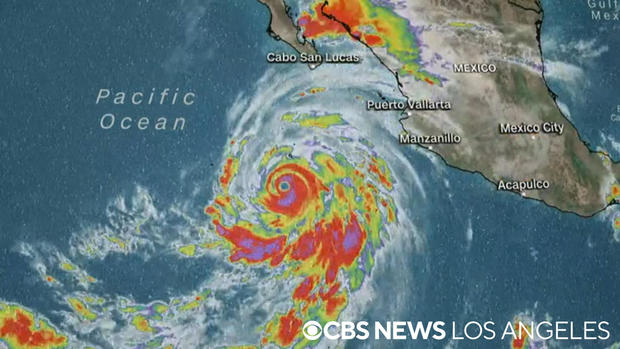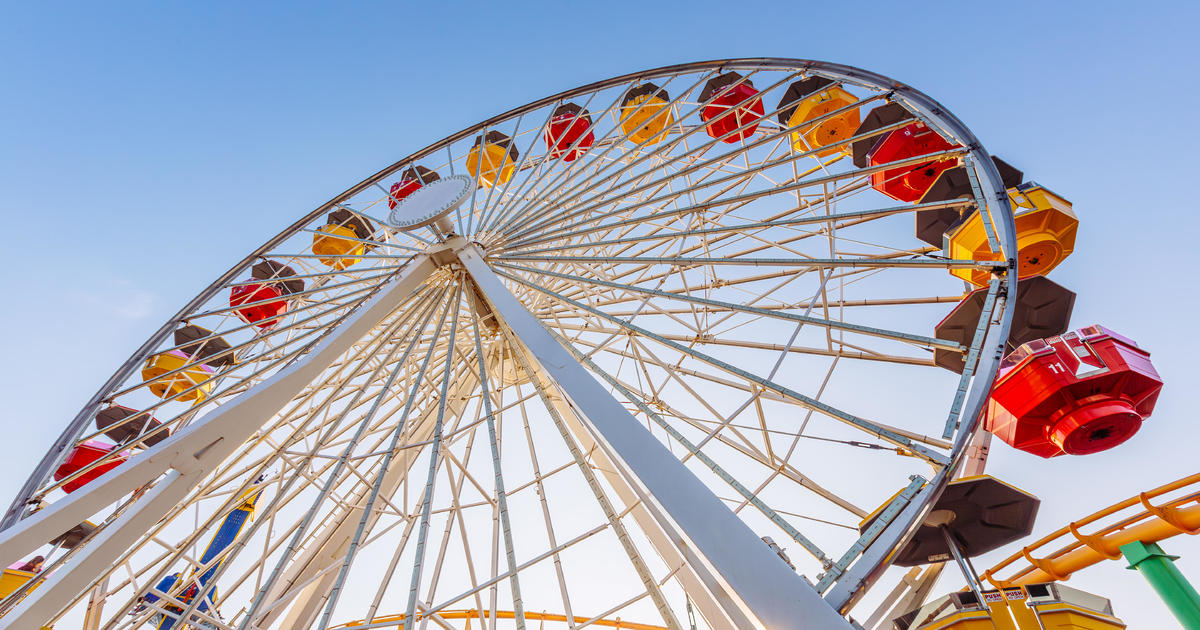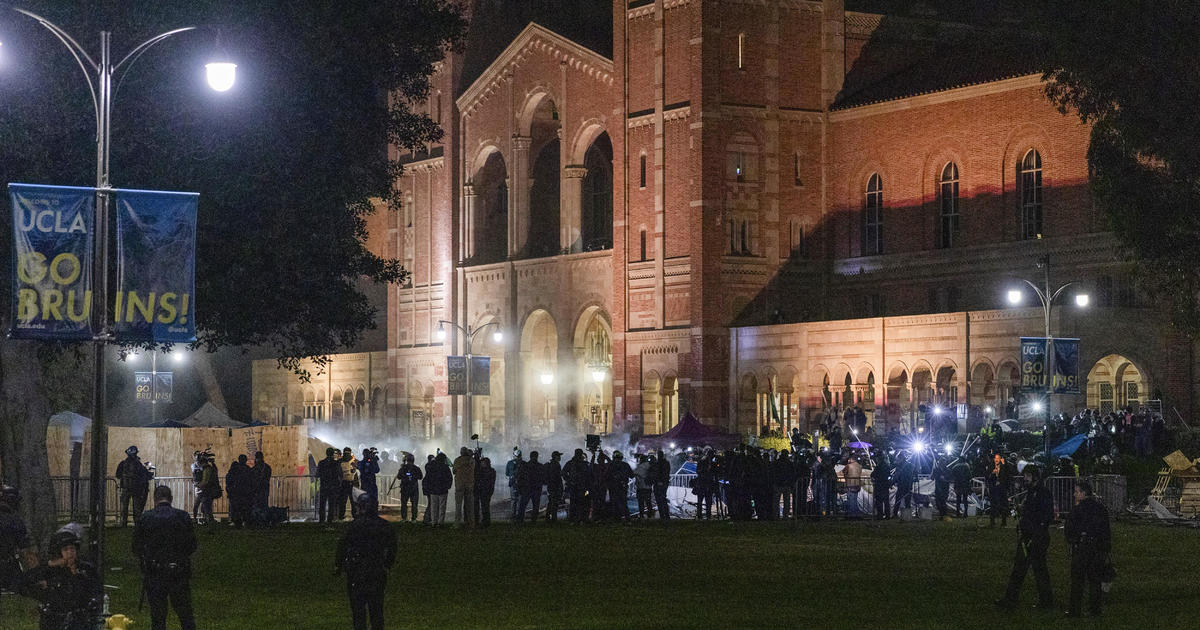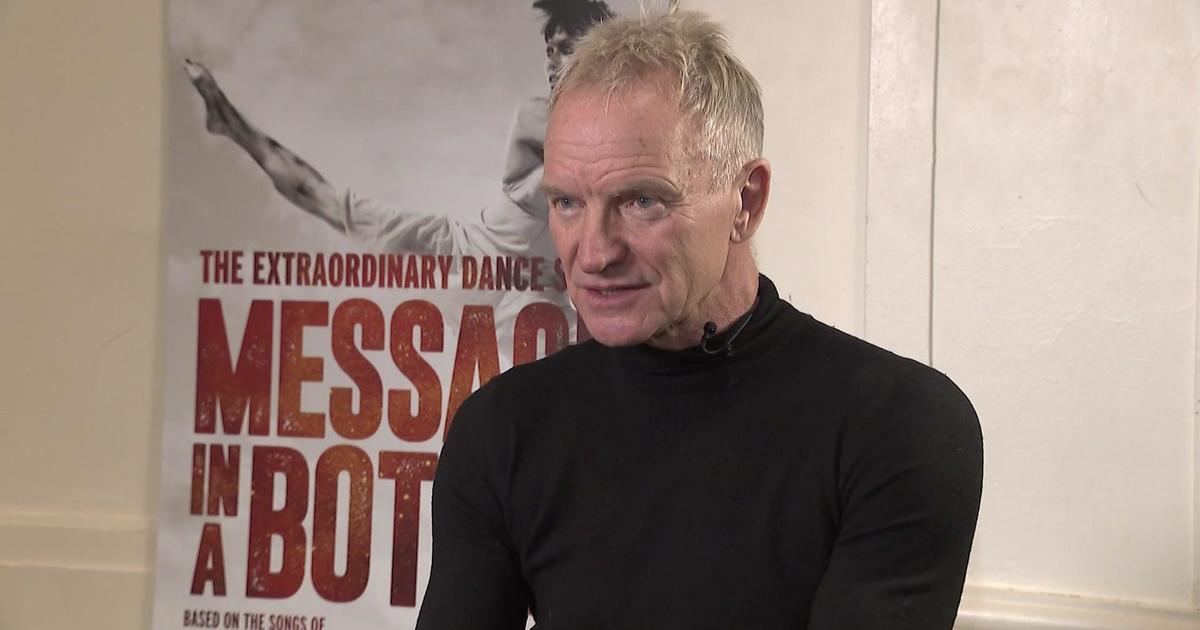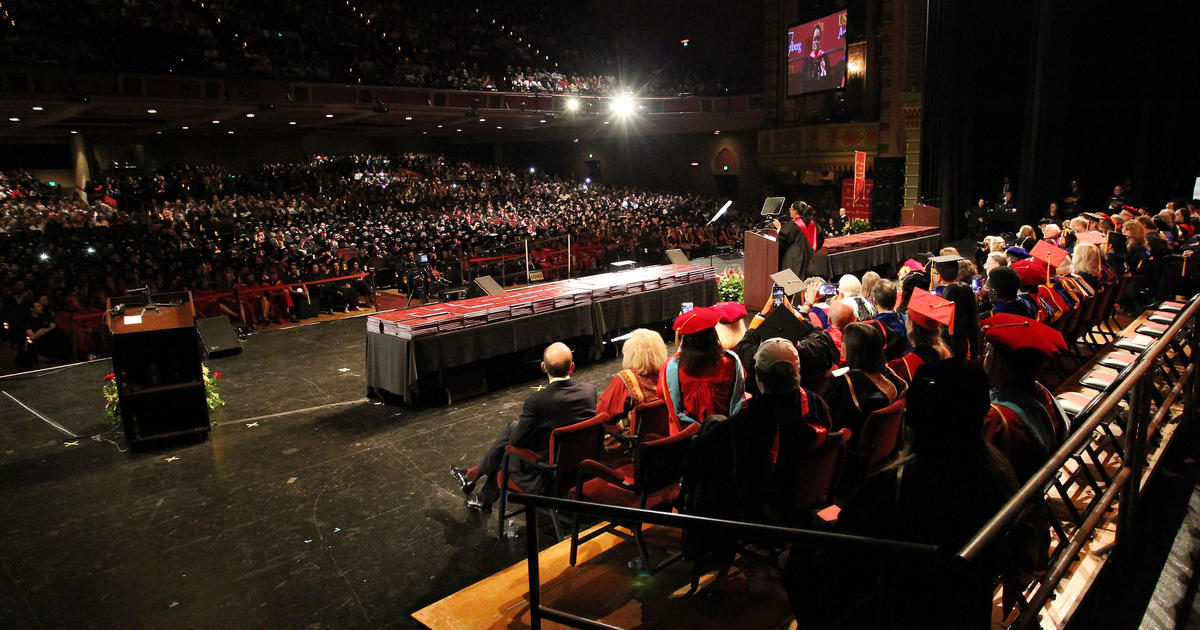Hurricane Hilary: Paul Deanno breaks down everything you need to know
As we continue to track Hurricane Hilary and prepare for its impact on Southern California, many people are have questions and concerns about the unknown. KCAL meteorologist, Paul Deanno talked to Kalyna Astrinos Friday morning on "The Morning Wrap" about misconceptions, what to expect and how the storm will impact our lives this weekend.
Kalyna: Everybody has been talking about this because it is so unusual. It's not every day that you hear about a hurricane, especially here in Southern California, so we want to make sure people know what to do and know what to expect. We're going to do a little weather 101 on hurricanes.
The first thing we want to know is if the hurricane is really actually going to hit us here at home. Sounds like that's not the case but we might see some impacts.
Paul: I'm here to tell you, a hurricane - an organized hurricane is not going to hit Southern California. That is not going to happen. What's left of this storm which may be as strong as a tropical storm... you get into the semantics... it doesn't matter. There's rain and wind coming our way, but is a hurricane going to hit Southern California? The answer is no.
Kalyna: So, we were looking through a lot of the questions that people were searching online because they're so curious about this storm and what it means for them. So, one of the biggest questions - just the history - has a hurricane ever hit California? Could a hurricane ever hit California?
Paul: Well, I could throw it back by saying, "could you win the Powerball?" - and the answer is, yes. But is it likely? The answer is no.
Could a hurricane hit here? Yes. Is it likely? Very unlikely.
Has it happened in the past? Yes, in the 1860's right after the Civil War, a hurricane did hit here. In 1939, a tropical storm hit here. Back then, there were no forecasts, so people not only freaked out, they have no idea what to do and a lot of people lost their lives. Now we can let you know to prepare you. Warmer ocean water is literally the gasoline for a hurricane. That's how they get their energy, so as the world warms and as oceans warm, that small chance of a hurricane hitting here increases, but it's still very, very small.
Kalyna: And this is something that I was actually talking to Marci about because she grew up in Florida. And she was saying the second you hear about that you know that the water is going to fuel that thing and continue to grow. That's not the case for us here.
Paul: For us, when you go to the beach, you might be like, "Oh man, I wish our water was a little warmer." That is exactly the reason why hurricanes, even if they're heading directly towards us - if I drew a line between this hurricane and your house, there's a 99.99% chance that wouldn't make it here, and the reason why is that it needs that energy and pulls from the ocean to keep it alive. And, we don't have that here because our ocean water usually runs in the mid to upper 60s. It's got to be in the upper 70s or warmer, which in Florida and Texas and Louisiana, that's a given. For us the water is too cold.
So, the storm begins to lose power and typically by the time they make it here yeah, there's gonna be thunderstorms and wind but it's not going to be a tropical storm or hurricane anymore. It's lost its fuel. It's like, you know what, you we get less energy when we're hungry. Well think of a hurricane becoming a starved hurricane because it lost its food source.
Kalyna: You know, like I've been seeing spaghetti models - is that what it's called? Where the track is kind of going on? It made me think about that because you see that you see where it started, and the potential tracks or different directions that could possibly go - so where did this actually start? And how likely is it to kind of veer off in a different direction?
Paul: I'll start with the spaghetti models, I actually make a choice to not to show those because that is raw data coming from like 20 different computer models. And I feel like I feel like my job is to filter that. My job is to give you my best opinion as to when I see that stuff. But what do I think is going to happen? I think just throwing spaghetti models on television sometimes, it's confusing and too it's like it almost makes it sound like I don't want to do my job because I'm not giving you any information other than what the computer says. This storm started in the equatorial Pacific down near the equator. That's where the water is the warmest and that's also where you hear a term called wind shear. Wind shear are the winds upper planes blow and a storm needs energy at the bottom of the storm, but it also needs an exhaust like a car needs an exhaust to get the bad stuff out. tropical systems also need an exhaust at the top of the storm. When you get stronger wind shear it kind of like is covering the exhaust and not allowing it to get rid of the stuff that doesn't want so there's less wind shear and warmer ocean water down by the equator. Now the storm will move into an environment where there's more wind shear, and there's not as much warm water making it weaker. That's why storms typically don't make it.
Kalyna: Going back to what I was saying earlier about people searching online for different things. So a lot of people are searching specific places and those areas will be impacted. So, San Diego, Disneyland, Cabo...
Paul: Let's start with San Diego. Very wet, very windy. Closer to the center of the storm. 40-50 mile per hour wind gusts - really a wash out Sunday and Monday. Don't go if you don't have to.
Okay, what about Disneyland?
Paul: Disneyland - it'll be soggy. Lines will be shorter and I wouldn't be surprised if a few rides might close. Some of the roller coasters, especially on Sunday, Tomorrow is going to be one of those days where nobody's going to be out because they're gonna be freaking out but it's actually going to be quite nice. So tomorrow - awesome... on Sunday, don't go.
Kalyna: What about Cabo?
Paul: Cabo is going to get a glancing blow but they're gonna get really rough surf, and they're gonna get you know, 30/40/50 mile per hour winds.
Paul and the other KCAL meteorologists are going to be watching this all of our meteorologists are going to be watching all weekend long. We will have continuing coverage on KCAL and streaming on CBS News Los Angeles.
Remember, you can find interactive radar, the seven day forecast, and video forecasts on our weather page: kcalnews.com/weather.
